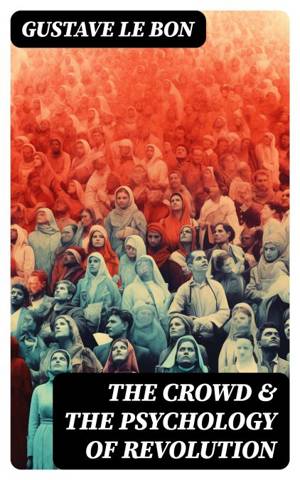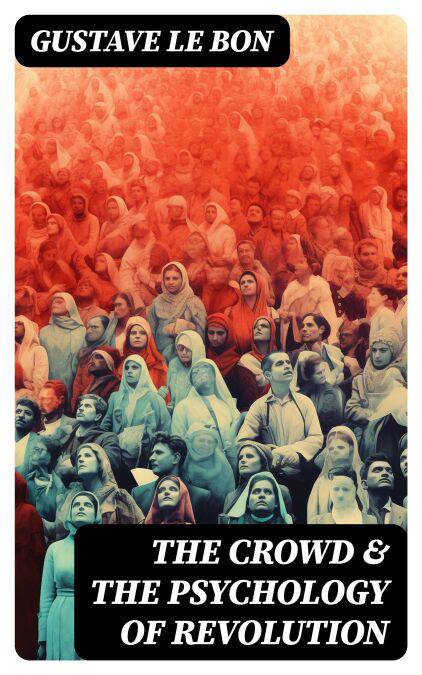
- Afhalen na 1 uur in een winkel met voorraad
- Gratis thuislevering in België vanaf € 30
- Ruim aanbod met 7 miljoen producten
- Afhalen na 1 uur in een winkel met voorraad
- Gratis thuislevering in België vanaf € 30
- Ruim aanbod met 7 miljoen producten
Zoeken
The Crowd & The Psychology of Revolution E-BOOK
Two Classics on Understanding the Mob Mentality and Its Motivations
Gustave Le Bon
E-book | Engels
€ 1,99
+ 1 punten
Uitvoering
Omschrijving
In "The Crowd & The Psychology of Revolution," Gustave Le Bon delves into the dynamics of collective human behavior, exploring the psychological forces that drive individuals to form crowds and participate in revolutionary movements. Written at the turn of the 20th century, Le Bon's work employs a blend of social psychology and political theory, characterized by a lucid prose style and a keen analytical lens. He argues that the collective mind of a crowd often overrides individual reasoning, leading to volatile actions driven by emotions rather than rational thought. This book is situated within the broader intellectual movement of sociology and psychology, positioning the study of crowds against the backdrop of societal upheaval and political revolutions of his time. Gustave Le Bon, a French social psychologist and sociologist, was deeply influenced by the tumultuous sociopolitical landscape of late 19th-century Europe, marked by revolutions and mass movements. His observations of public protests and his understanding of group dynamics were instrumental in shaping his theories on the psychology of crowds. Le Bon's insights were also informed by his extensive cross-disciplinary study of history, anthropology, and psychology, making him a pioneer in understanding mass behavior. This seminal work is essential for anyone interested in the interplay between psychology, sociology, and political science. Readers are invited to engage with Le Bon's profound observations on human behavior, as his insights continue to resonate, offering crucial understandings of contemporary societal movements and their psychological underpinnings.
Specificaties
Betrokkenen
- Auteur(s):
- Uitgeverij:
Inhoud
- Aantal bladzijden:
- 378
- Taal:
- Engels
Eigenschappen
- Productcode (EAN):
- 8596547752035
- Verschijningsdatum:
- 12/12/2023
- Uitvoering:
- E-book
- Beveiligd met:
- Digital watermarking
- Formaat:
- ePub

Alleen bij Standaard Boekhandel
+ 1 punten op je klantenkaart van Standaard Boekhandel
Beoordelingen
We publiceren alleen reviews die voldoen aan de voorwaarden voor reviews. Bekijk onze voorwaarden voor reviews.











